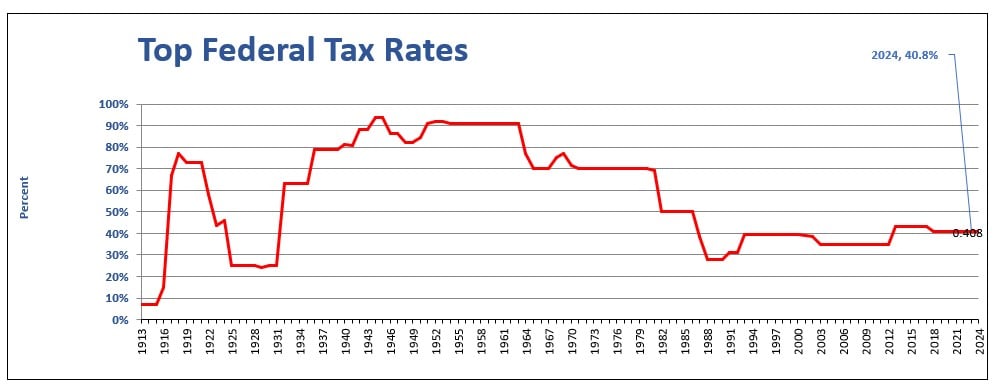Ounce of prevention worth a pound of not being subjected to an endless stream of racist hate-filled trolls!
- 0 Posts
- 46 Comments
Great list of websites to never visit 👍
I get enough hate-speech during on-line video games. By not using any of those apps, I successfully save myself from multitudes more, while also foregoing any potentially addictive status-seeking site-based-compulsions. I used to play Clash of Clans on my phone because it was a good way to waste a couple minutes while taking a shit. I quit when I began to play too much. I feel like Facebook, twitter, instagram, they’re all just sites to waste time on. Which begs the question, why waste time on them at all? Why waste time?
I know not every moment can be spent fruitfully, but when something you do to waste a bit of time in between/during mundane tasks becomes something that now demands attention outside of that, then it’s time to stop wasting time on it.
lol, I love it.
C.S. Lewis - “I’m going to make the single most catholic fairy tale ever. This thing will be such catholic, woah, watch out, catholic comin’ out of your ears with this fairy tale.”
The Gays: Smiling, rubbing hands together, menacingly
Oh god, what’s in the steaming tray in the last panel?? It’s a microwave meal, right?
…RIGHT?

 22·1 month ago
22·1 month agoHad a spider in my bathroom that I befriended. Named Steve. He was a tiny little thing that stayed on the crown molding, and had the foresight not to invade the inner sanctum of the shower space. I noticed Steve wasn’t catching many bugs, so I killed a fly, and while it was still twitching, I held it up for Steve to look at, then dropped said fly into his web. Steve must’ve been put off by the fact that the fly quickly died, and he didn’t bother eating it. Steve has now passed, starved up there in his web, without ever even touching that big ass fly I caught him.
Spiders are stupid. You’re a more efficient bug-killer by far, I’d wager.

 23·2 months ago
23·2 months agoThere are two reasons he believes the neocortex could be replaced, albeit only slowly. The first is evidence from rare cases of benign brain tumors, like a man described in the medical literature who developed a growth the size of an orange. Yet because it grew very slowly, the man’s brain was able to adjust, shifting memories elsewhere, and his behavior and speech never seemed to change—even when the tumor was removed.
That’s proof, Hébert thinks, that replacing the neocortex little by little could be achieved “without losing the information encoded in it” such as a person’s self-identity.
The second source of hope, he says, is experiments showing that fetal-stage cells can survive, and even function, when transplanted into the brains of adults. For instance, medical tests underway are showing that young neurons can integrate into the brains of people who have epilepsy and stop their seizures.
“It was these two things together—the plastic nature of brains and the ability to add new tissue—that, to me, were like, ‘Ah, now there has got to be a way,’” says Hébert.
Very interesting. I’ve also seen research suggesting that the application of stem cells to damaged neural tissue within the spinal cord could repair it, so the idea that you could use a similar approach to actual brain health isn’t such a big leap. But still, wow. I wonder how long it would take for the immature cells to develop into “adult mode” that’s fully integrated into the patients cortex. In order to replace the entire brain, you’d have to do it in like, 8 parts, with years of recovery time in between each surgery. Also there would exist the potential for the new cells to develop into like, a second, smaller brain, if the connections sour or if the new material isn’t stimulated the “right” way.

 321·2 months ago
321·2 months ago“The men came over to the car again and stood in front of it for a few minutes. Finally when they left, the car was still stalled but I clicked the ‘in car support’ on the screen and they seemed to be aware of the issue,” Amina said. “They asked if I was OK and the car began to drive towards my location. They asked if I needed police support and I said no.”
When she was almost to her destination, Waymo support called her again to ask if she was ok, she said. “I assured him that I was fine and he told me I would be given a free ride after,” she said. “After many hours I was called one last time by their support team. They asked if I was OK and told me that they have 24/7 support available. They also said I would get the next ride or next two rides (uncertain) free.”
While scary, I’m left kinda impressed by Waymo’s support.
Oh yeah, you may be right. I saw some trains in NL have upper sections, and the last row before the stairwell will have just one chair to give people space to negotiate it. So that could be it as well
Translates to “yess, The cuck chair is still available”
Though I think it’s actually for sitting next to a wheelchair bound companion, or to sit while holding your bike out of the way of the aisle.
 31·2 months ago
31·2 months agowas that clear enough?
 32·2 months ago
32·2 months agoIn no part of your response did you make any sense or a rational point, demonstrating a clear lack of understanding and a wanton disregard for good-faith arguing. Troll gonna troll I guess.
 241·2 months ago
241·2 months agoThe top 10% own 67% of the wealth in the U.S.
The tax rate during the New Deal (which corresponded with the largest jump in GDP and middle class growth) on people earning $200k and over (now would be like earning $2.5 million/year) was 95%.
During the 50’s through the early 80’s, that tax on the wealthiest was at 70%.
Now it’s at 37%, less than half of what it was during the best years of growth our country ever experienced.
This Unrealized gains tax would only impact people worth more than $100 million who do not pay at least a 25% tax rate on their income.
Additionally, you’d only pay taxes on unrealized capital gains if at least 80% of your wealth is in tradeable assets (i.e., not shares of private startups or real estate). One caveat is that there would be a deferred tax of up to 10% on unrealized capital gains upon exit.
In short, it would not apply to most startup founders or investors, but would impact top hedge fund managers.
They can afford it. TAX THEM.

 42·2 months ago
42·2 months agoI mean the stock market is literally gambling, so the risk of success and failure is already there. The proposal is whether or not we should allow people to use unrealized gains to secure loans without having to pay taxes on said gains at the point of taking the loan. This would only occur if you’re worth more than 100 million. You can afford to pay that tax.

 7·2 months ago
7·2 months agoOn 5 November 1910,[2][3] on her 14th outbound voyage, carrying a mixed cargo including a number of pianos for Chile, Preussen was at 23:35 rammed by the small British cross-channel steamer Brighton 8 nautical miles (15 km) south of Newhaven.[4] Contrary to regulations, Brighton had tried to cross her bows, underestimating her high speed of 16 knots (30 km/h). Preussen was seriously damaged and lost much of her forward rigging (bowsprit, fore topgallant mast), making it impossible to steer the ship to safety.
Brighton returned to Newhaven to summon aid and the tug Alert was sent to assist Preussen. A November gale thwarted attempts to sail or tug her to safety in Dover Harbour. It was intended to anchor her off Dover, but both anchor chains broke, and Preussen was driven onto rocks at Crab Bay, where she sank as a result of the damage inflicted on her. While crew, cargo and some equipment could be saved from Preussen, with the keel broken she was rendered unsalvageable. She sits in 6 metres (3.3 fathoms) of water at 51°8.02′N 1°22.17′E. The Master of Brighton was found to be responsible for the accident and lost his licence as a result. A few ribs of Preussen can be seen off Crab Bay at low spring tides.
Wow, that captain messed up big time.

I hope your day was more than adequate 🙂
My school had a kid build a computer for the science fair, and our science teacher was like “yeah, you basically just put together an expensive lego set.” and gave him an “adequate” ribbon
Was going through links on a wholesome subreddit the other day, looking to calm myself down, and happened upon a video of a young teenage girl in an audiologists office getting her cochlear implants turned on. She was emotional, and happy crying, as her mom filmed her. But it just seemed kind of wrong to share? Like, this is a private moment for you and your family, and you can see the moment the girl realizes she’s being recorded, and how she then immediately goes to wipe tears/cover her face.
I’ve come to revel in the idea of not recording precious moments, just because I don’t want to cheapen them with the inclusion of a smartphone, a screen to separate myself from life happening on the other side. I take a similar approach to good deeds. Do something good, or kind for someone, and then don’t tell a soul. Keep it with you, for you, only. Hoard those moments like a dragon, and whenever you are having a crisis of faith, where you’re unsure as to your own worth, remind yourself of those times you did something kind for no other reason than it was the right thing to do.
It’s not they filming that’s the problem, it’s posting a video of them being vulnerable on social media for everyone to see, and possibly be used against them in the future. Would you be appreciative if the next time you ugly cried, someone took a video of you doing so, adding their commentary, and then posted it for the world to see?
Why does the article keep referring to Google as “The Chocolate Factory?”